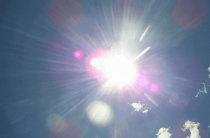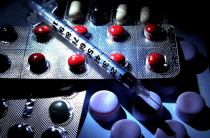Skin allergy is not a separate allergic disease, but its symptom. Treatment of skin allergies requires determining the factor that causes the hypersensitivity reaction by performing skin tests. This factor can be a physical or chemical effect. After it has been determined, it is worth completely eliminating contact with it, or limiting it as much as possible.
It is worth adhering to a special hypoallergenic diet, from which all allergenic foods are excluded. Also, it is advisable not to eat food that is difficult to digest and assimilate - smoked meats, animal fats, a large amount of spices, canned food.
If a person works in harmful conditions, it is recommended to change jobs.
Physical factors can be eliminated by choosing the right clothes and shoes. Also, using the method of tolerance induction - a prolonged effect on the skin of an allergenic factor, it is possible to achieve a complete "addiction" of the body to it.
Medication treatment
Antiallergic drugs help to reduce the body's sensitivity to various damaging substances (in particular, to histamine), accelerate the elimination of toxic products from the body, and resist local allergy symptoms.
This requires the use of:
- Antihistamines.
- Calming drugs to eliminate the effects of nervous strain.
- Sorbents that absorb excess toxins and remove them from the body.
- Steroid hormones, used both in the form of tablets and as topical agents. They have a powerful antiallergic effect. The most common drug is Prednisone.
- Antibiotics that eliminate chronic infections.
- Immune stimulants.
- Means of local action - ointments, creams, compresses. Use products that contain steroids and antibiotics. They are able to relieve itching, prevent suppuration due to scratching the skin.
- Solutions of dimexide, delaskin, decoction of oak bark in the form of compresses help relieve inflammation, antibacterial effect.
- Vitamins individually and in combination.
- Physiotherapy (electrophoresis, phonophoresis, UV irradiation).
- Sea and mud baths.
- Paraffin applications.
Skin allergy pills and other antihistamines are selected depending on the age of the patient, the severity of the disease, and the test results. To provide first aid to an allergic person, he can be given Tavegil or Suprastin.
Both the first and the second drug depress the work of the central nervous system. It is for this reason that they should be taken at bedtime, since after their use a person develops drowsiness and lethargy.
When the doctor makes a definite diagnosis, the patient is prescribed modern anti-allergy drugs. These include Claritin , Zyrtec, Loratadin. These drugs have few side effects and contraindications.
A drug such as Cetirizine is well absorbed through the skin and is normally perceived by children from the age of six months.
A quick action is provided by the drug Erius, and its more affordable analogue Edem. Both drugs are able to relieve itching, hives, allergic symptoms in case of an allergy to an insect bite and do not adversely affect the central nervous system.
The duration of action of the drugs is quite long, so they should be used no more than once a day. The course of treatment, dosage are determined by the doctor for each patient individually.
Corticosteroids (hormonal medications), which are most commonly available as allergy pills, are used when antihistamines do not work.
Means of external use - ointments with antihistamine action are applied precisely to the area of application.
Before applying them, it is necessary to wash the affected area of \u200b\u200bthe skin, on which there may be allergens or particles of dirt, so that when they are rubbed in, they do not penetrate deeper into the layers of the skin.
Such ointments are also a means of first aid. Their effect is based on a decrease in vascular permeability, which eliminates swelling and irritation of the skin.
The composition distinguishes between hormonal and non-hormonal ointments.
Non-hormonal ointment (gel, emulsion, cream) can be used without a doctor's prescription. It can be used for a long time to eliminate allergic symptoms in children.
Ointments containing lanolin are used to eliminate minor skin manifestations.
Antihistamine creams include fenistil, tavegil, soventol, which have a pronounced antiallergic effect, are able to relieve swelling, itching. An effective remedy that will help eliminate unpleasant symptoms after an insect bite is fenistil-gel.
Principle of action and side effects of drugs
The hormonal soft external agent has a pronounced antihistamine effect, and at the same time can affect the functioning of the adrenal glands.
The modern pharmaceutical industry produces hormonal ointments that do not have a significant effect on the adrenal glands, such as advantan, elocom.
If it is necessary to eliminate skin manifestations of allergies in children, use advantan or elokom, which are diluted in equal proportions with baby cream.
Depending on the strength of the influence of hormonal ointment, they are divided into types:
- with low activity (contain prednisolone, hydrocortisone);
- with moderate activity (fluorocort, afloderm);
- with medium activity (apulein);
- with high activity (dermovate).
With extreme caution, it is necessary to apply hormonal ointments on the skin of the face, as it is especially sensitive and thin.
If skin allergy is combined with other skin diseases, or infection, it should be treated with combined agents - clotrimazole, triderm.
It is impossible to use hormonal drugs on an ongoing basis and in unlimited quantities. Their use is permissible only when the patient has an acute form of the disease. Hormonal drugs are used for several days, and the rest of the time - soft non-hormonal drugs.
Vitamin complexes (immunomodulators) can be prescribed by a doctor in order to strengthen the patient's immunity, which will help eliminate skin rashes.
It is very important that the drugs are prescribed by the doctor, because the patient may experience an allergic reaction to some components of the vitamin complex. Walking in the fresh air, playing sports also help strengthen the immune system.
Enterosorbents are prescribed in order to remove toxins from the body. With their help, you can quickly remove allergens from the body and overcome the negative consequences of toxic effects.
Such means include activated charcoal, which is taken on the basis of one kilogram of weight - one tablet. Also, polysorb can help overcome the effects of allergies from drugs, food, pollen. It does not pose a risk to children or adults.
It is necessary to use this remedy during the period of increasing allergic reactions, and during its weakening by courses.
With the help of polypefan, toxic substances that act in the gastrointestinal tract are bound. Apply enterosorbents only after consulting with your doctor.
Also, during the period of "weakening" of the disease, desensitization can be carried out, which implies the introduction of small doses of allergens, which allows developing immunity to them. Desensitization is carried out after the type of allergy has been accurately determined, in a hospital under the supervision of a doctor.
Treatment of allergies in pregnant women provides for even greater thoroughness of the examination, and the appointment of only harmless drugs. When the first symptoms of the disease appear in this case, you need to contact a dermatologist.
Treatment of skin allergies with folk methods
With the help of the use of herbal decoctions, itching, irritation, and swelling can be eliminated. To remove the symptoms of allergies, you can use folk recipes. A specific reaction of the body to the introduction of foreign proteins occurs only in individual cases.
For this reason, it is possible to use self-prepared ointments, infusions, in combination with drugs, during those periods when the body is recovering.
Treatment of dermatitis in children
A decoction of chamomile and string is considered very effective and safe for eliminating dermatitis in a child. Such a tool can be added to the bath or used as lotions.
An excellent effect is given by baths with the addition of a decoction of bay leaf. After taking them, the affected areas of the skin are lubricated with a zinc-containing ointment.
You can get rid of itching, inflammation by rubbing the skin with cabbage brine.
It is possible to use soda and salt lotions. Alcoholic solutions of calendula, propolis will help to remove irritation of the skin. When such drugs are not at hand, you can use regular cologne.
Severe itching can be eliminated by the following remedy - clove oilmixed with baby cream.
Oral preparations
For oral administration, preparations such as mummy solution are perfect. In order to prepare it, dissolve one gram of the product in a glass of water. You need to drink one article a day, for children a reduced dosage is needed. To eliminate a skin rash, you need to use a strong solution.
A decoction of a string can help to cope with allergies. They drink it instead of tea, each time brewing a new drink. For a glass of boiling water, you need to take one teaspoon of herbs.
Treatment with physical factors
To cure skin allergies, a dermatologist involves related specialists for each specific case individually. Therapy is often long and involves the implementation of a set of actions. To achieve a positive effect, it is necessary that the patient follow all the recommendations of the doctor.
Mechanisms that trigger the allergic process
The immune response underlies any allergic disease. It is the interaction of an antigen with an antibody. An antibody is chemically a glycoprotein produced by plasma cells (a type of lymphocyte).
And an antigen is any foreign agent with a fairly large molecular weight. It can be a protein, a virus, a component of bacterial or tumor cells. Antigens with a small molecular weight can interact with blood proteins, "increase" the mass, which will be enough for the immune system to react.
When an antigen first enters the body, it contacts the receptors located on the lymphocyte and provokes the production of antibodies. They are specific, strictly correspond to this antigen. Then there is a gradual accumulation in the blood plasma.
When the antigens enter the body again, an immunological reaction occurs - the synthesized antibodies attack the foreign agent. They are fixed on its surface and form immune complexes.
If the immune response is normal, the body develops protection against its own cells that have become alien. Due to the attack of antibodies, "enemy" bacteria, viruses, malignant cells are destroyed.
When a pathological (allergic) reaction of the immune system occurs, the body inadequately assesses the danger and reacts to harmless substances.
An "unnecessary" allergic reaction can be triggered by any substance. Not only "foreign agents" can be attacked, but also the body's own units (cells, tissues, organs). Due to the fact that there was a failure of the protective forces, autoimmune diseases can occur, sometimes of a very severe form.
Features of skin allergies
The main feature of this type of allergy is the place of its localization. The skin is considered to be an independent organ, often the largest. Their main functions are considered protective and participation in metabolic processes. Kidneys and skin remove toxic products.
Since the skin has a large number of receptors, it is very susceptible to endogenous and exogenous negative influences.
Allergic manifestations on the skin include redness, swelling, pain, itching, dysfunction of the skin. Depending on how quickly allergic manifestations of the disease occur, chronic and acute reactions are distinguished. They are also called delayed and immediate type hypersensitivity.
Causes of skin allergies
For an allergic reaction to pass, not only does the allergen enter the body, it is also necessary for it to get into a “negatively tuned” environment for it. If the immune system is irritated, sensitized, allergic symptoms will occur immediately. It is not yet completely clear what causes the appearance of sensitization. Allocate a set of factors that can provoke such a strong and "aggressive" response of the immune system.
Most of these factors are the characteristics of the organism. It is because of this that the complete elimination of allergic skin diseases is impossible.
The most common triggers for allergies are:
- Genetic predisposition . Allergies are often inherited. When both parents suffer from allergies, the risk of having an allergic child increases exponentially. You need to understand that it is not the disease itself that is transmitted to the baby, but the specific structure of organs or systems, which causes allergies.
- Disturbances in the hormonal background . They can either be inherited from parents or arise due to endocrine diseases (diabetes mellitus, adrenal disease, pituitary gland).
- Chronic infectious diseases and helminthiases . If bacterial, viral, parasitic foci are present in the body for a long period of time, because of which the immune system is constantly irritated and sensitization develops, allergic manifestations may occur on the skin. Therefore, before treating allergies, you need to get rid of foci of perennial infection.
- Malfunctions of the nervous system . In addition to the structural features of the nervous system, which are congenital, there may also be those that are acquired over time. They can be caused by constant emotional experiences, nervous disorders, psychological trauma.
- Great permeability of the intestinal mucosa , which is caused by the genetic characteristics of its structure. Because of this, large poorly split molecular formations, most often proteins, enter the bloodstream. They are characterized by antigenic activity, which can cause food allergies.
- Metabolic disorders . When a person has diseases of the excretory organs, the concentration of toxins in the blood increases dramatically. Since the load on the kidneys increases, it is distributed to the lungs and skin. An increased content of specific substances in the skin can provoke an allergic reaction.
Factors that trigger skin allergies
If a person has a predisposition to allergic manifestations, even a slight intake of an allergenic substance into the body can become a decisive factor, after which the pathological process will start. Because of this, the following symptoms appear on the skin - rash, itching, swelling.
These symptoms are often manifested due to chemical influences. They enter the blood along with the products, being absorbed in the intestines, through the respiratory tract, by direct contact with the skin.
Some diseases (types of urticaria) can provoke physical factors. So, it can be abnormally high or low temperature, radiation, pressure. Skin structures that have been damaged under the influence of these factors are perceived by the immune system as antigens.
Allergies can be caused by:
- Food products. It is possible that a food allergy may occur to any dish, but it is worth considering the level of allergenicity of the products. So, highly allergenic foods include honey, citrus fruits, nuts, mushrooms.
- Hair, pet hair, fur. They can cause epidermal allergy.
- Plants and their components (often pollen).
- chemical compounds. There are many chemicals that can trigger an allergic reaction. Thus, the use of aniline dyes, pesticides, drugs (antibiotics, serums) weakens the immune system.
- physical factors. Friction, vibration, radiation, cold or heat exposure can trigger the development of allergies.
- Insect bites.
- Cosmetics - creams, powders, shadows, perfumes.
As soon as the first symptoms appear on the skin, contact with these allergens should be excluded.
When it is impossible to identify and eliminate the source of the allergy, then it is worth excluding all new products with which the patient has interacted in recent days - new products, washing powder, perfumes.
After direct exposure to the allergen with the skin, it should be immediately washed under running water.
To reduce itching and relieve acute skin irritation, you need to make a saline compress and take a cool shower.
Those who have suffered from allergic reactions for several years know which medications they need to take first.
When a reaction on the skin occurs for the first time, and then repeats with a certain frequency, it is necessary to undergo a full examination by an allergist and establish the cause of the disease, choose a systemic treatment.
Allergic diseases that have manifestations on the skin
To eliminate skin rashes, it is worth eliminating the underlying disease that provokes it. Such diseases include:
- Urticaria. Its manifestation is a rash that appears in response to a physical or chemical factor. It can be both acute and chronic.
- Atopic dermatitis. It most often occurs in childhood, with symptoms similar to food allergies. The disease can last for many years.
- Eczema. It is able to complicate the course of chronic purulent diseases, has a neuroallergic origin.
- Syndromes of Lyell and Steven-Johnson. Due to the introduction of certain drugs, serious complications occur, which manifest as tissue necrosis of a large area of the skin.
- Toxicoderma. A disease that develops from the fact that various chemical compounds enter the body often has a domestic and professional origin.
Diet food for allergies
Certain foods, which include citrus fruits, seafood, red apples, and eggs, can provoke skin allergies. Sometimes honey, nuts, milk can provoke an allergic reaction.
After people who suffer from allergies eliminate such foods from their diet for several years, they experience a significant reduction in the intensity of symptoms.
Fasting days
To reduce the risk of skin allergies, it is necessary to periodically spend fasting days, as well as include foods such as: fresh vegetables, rosehip broth, green tea.
For people who are prone to skin allergies, it is very important to follow the rules of personal hygiene, and follow these recommendations:
- After returning home, in particular during the flowering period of plants, thoroughly wash your face, rinse your mouth, and wash your nasal passages. Thus, the allergen will not be able to get inside.
- Carry out regular wet cleaning. Replace heavy curtains with curtains so that you can wash them at least once every ten days.
- Use cosmetics and detergents only from trusted brands. It is best to use baby powder, shampoo, soap, which have the least amount of fragrances, chemical additives.
Allergy manifestations on the skin should be eliminated immediately after they appear. If you start them, then eczema may develop in the future - a chronic disease, with periods of relief and exacerbation. In order to recover from it, you need to make a lot of effort.
Permanent or recurring allergies have a bad effect on the work of internal organs and provoke the development of many diseases. With the help of modern methods of examination and skin tests, it is possible to determine the allergen with almost one hundred percent certainty.
Due attention should be paid to allergies in children, because timely detection and treatment will eliminate all signs of the disease at a time and prevent their occurrence in the future.
Learn more about skin allergy treatment from our consultant.















